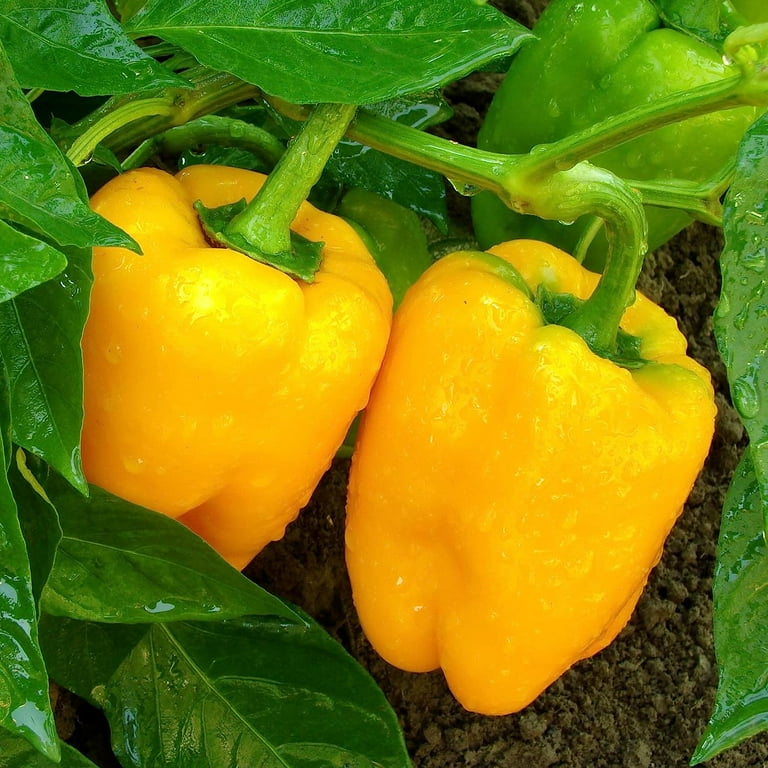Organic Vs. Synthetic Fertilizers: Which Is Best for Nurturing Healthy Pepper Plants?
In the world of supporting healthy pepper plants, the option between natural and artificial plant foods stands as a crucial choice with significant ramifications. While both options aim to give crucial nutrients to sustain plant growth, the subtleties of their effect on the dirt, plant health, and the atmosphere trigger a dispute that mirrors throughout the horticulture neighborhood. Understanding the distinctive advantages and potential challenges of each fertilizer kind is critical for pepper cultivators seeking to maximize their yields while keeping an eco-conscious and sustainable technique.
Benefits of Organic Plant Foods
Organic fertilizers offer an environmentally-friendly and sustainable strategy to nourishing pepper plants, giving necessary nutrients without making use of artificial chemicals. These natural plant foods are derived from natural sources such as garden compost, manure, bone meal, and seaweed, advertising soil wellness and biodiversity. Unlike synthetic plant foods, organic choices launch nutrients slowly, making certain a consistent and well balanced supply for pepper plants to flourish.
One substantial benefit of organic plant foods is their ability to enhance dirt structure and water retention. By boosting soil wellness, organic fertilizers advertise helpful microbial activity, which aids in nutrient uptake by pepper plants. In addition, natural fertilizers decrease the threat of chemical run-off, safeguarding water resources from pollution and guarding the environment.
Moreover, natural fertilizers contribute to lasting dirt fertility by promoting the growth of valuable dirt organisms. These organisms assist damage down organic matter, releasing nutrients in a type that is conveniently accessible to pepper plants. best fertilizers for peppers. By promoting a healthy dirt ecosystem, organic fertilizers support sustainable pepper growing methods that profit both plants and the setting
Downsides of Artificial Plant Foods
Synthetic fertilizers, in comparison to their natural counterparts, pose numerous negative aspects when utilized to nourish pepper plants, impacting both plant wellness and environmental sustainability. One major downside of artificial fertilizers is their tendency to seep nutrients from the soil rapidly.
Moreover, the overuse of artificial fertilizers can add to water pollution. Excess plant foods not taken in by plants can remove into water bodies, leading to eutrophication, where algae blossoms diminish oxygen levels in the water, damaging aquatic life. Artificial fertilizers are typically obtained from non-renewable sources, such as fossil fuels, adding to carbon emissions and ecological degradation during their manufacturing.
Nutrient Absorption Comparison
Efficient nutrient absorption plays an important role in the general wellness and growth of pepper plants. When contrasting natural and synthetic fertilizers in terms of nutrient absorption, natural plant foods have the advantage of supplying a more balanced and slow-release resource of nutrients (best fertilizers for peppers). Organic plant foods contain a range of macro and trace elements that are not just advantageous for the plants however additionally promote healthy and balanced dirt microbial task, which aids in nutrient uptake. On the other hand, artificial plant foods frequently supply a fast launch of nutrients, which can result in seeping and drainage, causing lower nutrient absorption rates by the plants.
Furthermore, organic fertilizers improve soil framework and water retention ability, permitting pepper plants to accessibility nutrients more efficiently. This improved dirt high quality assists in origin advancement, allowing much better nutrient absorption. Synthetic fertilizers, although initially boosting plant growth as a result of their high nutrient focus, might prevent long-lasting nutrient absorption by degrading soil health with time.
Ecological Effect Considerations

On the other hand, synthetic plant foods, although frequently even more quickly offered and concentrated to plants, can have destructive impacts on the setting otherwise used appropriately (best fertilizers for peppers). Their production calls for high energy inputs, bring about greenhouse gas emissions and adding to climate adjustment. Furthermore, the overflow of excess synthetic plant foods can contaminate water resources, leading to eutrophication and hurting marine environments.
Ideal Fertilizer Practices for Peppers
To attain this, it is essential to follow best plant food techniques customized to the details demands of pepper plants. One critical technique is to execute a dirt examination before applying any fertilizers.
Another important technique is to feed pepper plants at the appropriate time. Commonly, peppers gain from obtaining plant food at growing and then once again when they start to blossom. Over-fertilizing can cause nutrition discrepancies and harm the plants, so it is vital to adhere to advised application rates.
Additionally, picking a well balanced fertilizer with an NPK ratio that matches pepper plants' demands is fundamental. Organic plant foods, such as garden compost or manure, can be outstanding choices as they launch nutrients slowly and boost dirt structure over time. Nonetheless, synthetic plant foods can supply a quick nutrient boost when look at this now required. Ultimately, incorporating artificial and organic plant foods judiciously can aid nurture healthy and balanced pepper plants while reducing ecological effect.
Verdict

Organic fertilizers provide a lasting click here for more and environmentally-friendly method to beneficial pepper plants, providing necessary nutrients without the usage of synthetic chemicals. Unlike synthetic plant foods, natural options release nutrients gradually, ensuring a well balanced and steady supply for pepper plants to flourish.
Artificial plant foods, in comparison resource to their organic counterparts, present numerous disadvantages when used to nourish pepper plants, affecting both plant wellness and ecological sustainability. When contrasting synthetic and organic fertilizers in terms of nutrient absorption, natural plant foods have the benefit of supplying an extra well balanced and slow-release resource of nutrients.Moreover, natural fertilizers improve dirt structure and water retention ability, allowing pepper plants to access nutrients extra effectively.